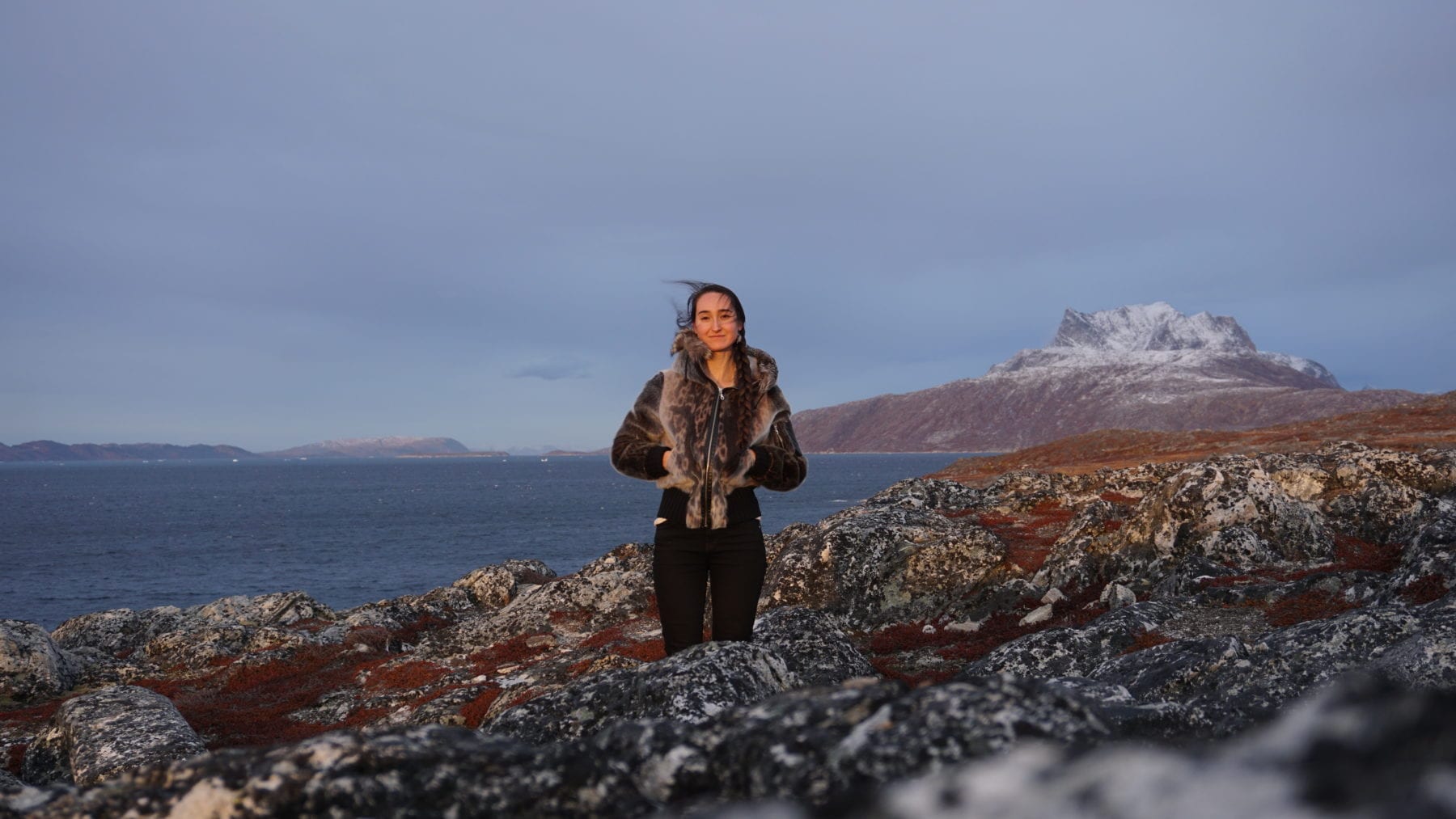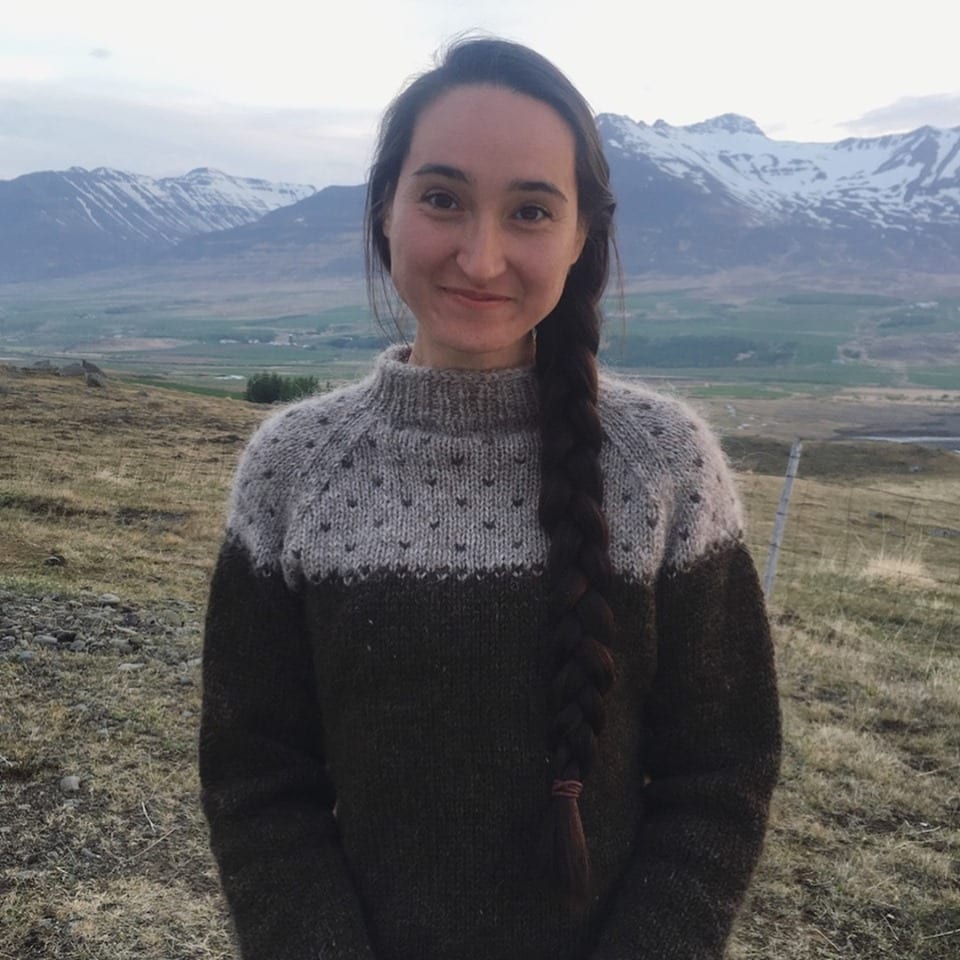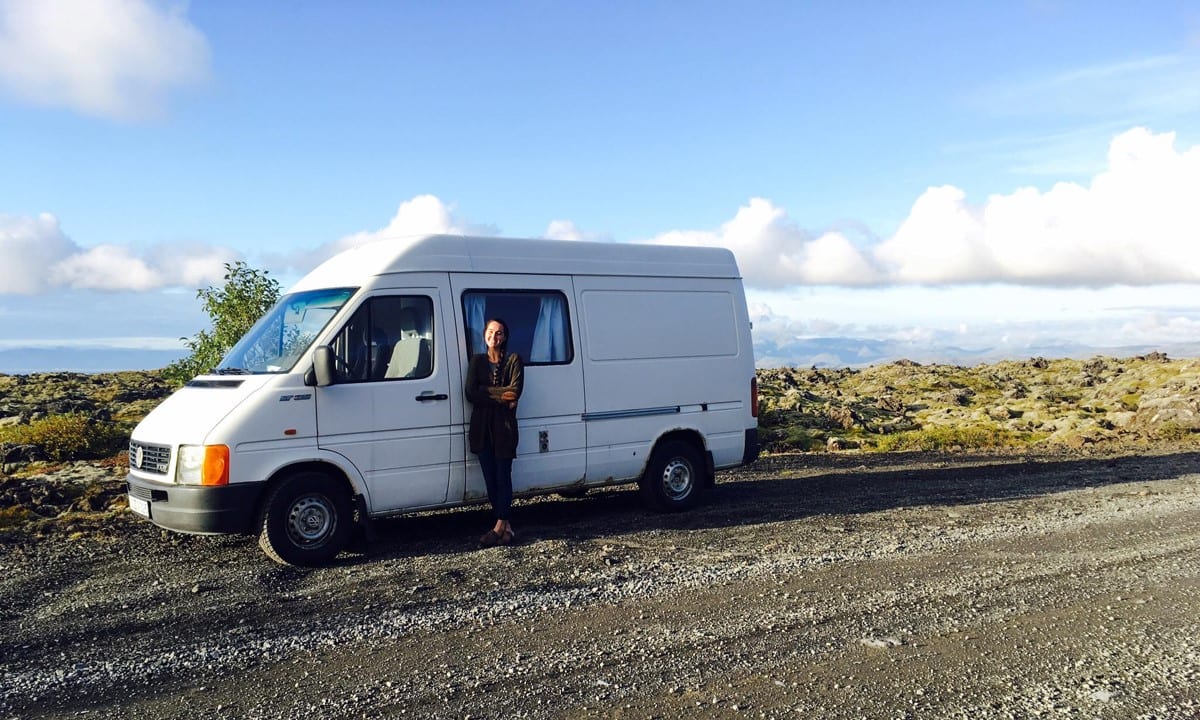Empowering Indigenous Voices in the Arctic

by Victoria Qutuuq Buschman, Ph.D., Fulbright Fellow 2018-2019
MSc. Wildlife Science, MPA. Environmental Policy, (Ph.D.) Conservation Biology Victoria is an Iñupiaq (Inuit) wildlife and conservation biologist raised between Utqiaġvik, Alaska, and Northern California. Her specialty lies in the conservation of lands, waters, and species across Arctic Indigenous homelands. Having lived and worked across the circumpolar Arctic, she promotes how Indigenous peoples fundamentally shape Arctic biodiversity conservation from research, to management, to actualizing the dreams of new protected areas. Her role in research is to challenge the colonial legacy of conservation and instead promote partnerships with Indigenous communities to develop culturally-relevant, ethically-conscious, and fully knowledge-based conservation initiatives. By empowering Indigenous voices in Arctic research, policy, and decision making, she believes we can better achieve our global conservation targets and goals.

Hello from Inuit Homelands!
Hello from Greenland – Iceland’s close and friendly neighbor! My name is Victoria Qutuuq Buschman and I am a former Fulbright-NSF Arctic Research Fellow originally from northern Alaska. My journey living and working across the Arctic is an unusual one, and it’s thanks to opportunities like the Fulbright Program that I can explore what it means to be Inuit in the pursuit of world-changing Arctic conservation initiatives.
I am an Iñupiaq (Inuit) wildlife and conservation biologist partially raised on the vast tundra around Utqiaġvik, the northernmost town in the United States. It is a remote community where our people are deeply connected to our homelands, our culture, and our knowledge. Inuit, our people, live across the northern reaches of Alaska, Canada, Greenland, and Chukotka, in Russia. We share a common language, a common worldview, and a common understanding of Indigenous natural resource management. It was through my many experiences growing up in the Arctic that I decided to pursue a career in the management and conservation of our homelands.
I have lived and worked across the Arctic in an effort to promote how Indigenous Peoples fundamentally shape Arctic biodiversity conservation, from research, to management, to actualizing the dreams of new protected areas.
My role in research is to challenge the colonial legacy of conservation and instead promote partnerships with Indigenous communities, knowledge, and governance to develop ethically-conscious, culturally-relevant, and fully knowledge-based conservation efforts in the Arctic. By making conservation more relevant and supportive of Indigenous activities, perspectives, needs, and goals, together we can work towards achieving global conservation targets and goals.
Developing the Arctic Wetlands and Indigenous Peoples Study
I am currently working on finishing my Ph.D. at the University of Washington, School of Environmental and Forest Sciences in Seattle, U.S.A. My Ph.D. is unique in that it has supported my ability to live full time in the Arctic while conducting research. I live and breathe the Arctic, so when Fulbright Iceland offered me the opportunity to make a temporary home in Iceland while working on my Ph.D., I immediately accepted. I was greatly looking forward to experiencing another sister country here in the north.
As part of my Ph.D. studies, I have made it my personal business to understand the contexts and coordination of the conservation of lands, waters, and species in each of the Arctic countries. I was determined to use my Fulbright year to also understand research and coordination from an international perspective by affiliating with the Conservation of Arctic Flora and Fauna (CAFF) biodiversity working group of the Arctic Council, which is situated in Akureyri, in the north of Iceland. CAFF is responsible for many of the international research and reporting initiatives that focus on Arctic biodiversity and produce publications on international monitoring, assessments, strategies, and policies including large publications such as the Arctic Biodiversity Assessment.
From the start, CAFF was wonderfully supportive of my ambition to research how Indigenous communities contribute to conservation in the Arctic. I took on the role as the lead researcher of the Arctic Wetlands and Indigenous Peoples Study (AWIPS), a small, somewhat independent part of the Sweden-led Resilience and Management of Arctic Wetlands Initiative.
Conclusions from the study include (1) that Indigenous communities are using 90% of sampled protected areas for traditional activities that contribute to Indigenous food security, including hunting, fishing, gather, herding, and farming, (2) despite that use, Indigenous communities only have ownership or management authority in approximately one-fourth of those areas, and (3) the lack of attention to Indigenous uses of lands, waters, and species is a glaring omission in almost all management and conservation plans. The attention to Indigenous uses of space is not intended to further control its use, but rather a recognition that we cannot meet Indigenous perspectives, needs, and goals if we do not know what they are.

Co-Creating Natural Resource and Tourism Education in Greenland
Since completing my Fulbright year, I applied for a Conservation Research Fellowship through the American-Scandinavian Foundation and affiliated with the Greenland Institute of Natural Resources in Nuuk. Here in my new permanent home in Greenland, I am continuing to work towards recognizing the contributions that Indigenous peoples make in research, conservation, and governance. I have secured $50,000 for Indigenous conservation research with a dissertation improvement grant through the NSF Office of Polar Programs and helped secure a $1.8 million dollar grant for the development of natural resource management and tourism education programs here in Greenland through the U.S. State Department. I am now, in part, the Indigenous Knowledge and Conservation Advisor for the Arctic Education Alliance, a partnership between universities and institutions in the U.S. and Greenland that are working to bring culturally-relevant natural resource and tourism management education programs to Greenland. These programs currently don’t exist within Greenland which places the burden of education on Greenlandic students who must choose to leave the country to study in the sciences.
Towards Bigger Goals
Fulbright was my first international research fellowship, and it has since opened many doors for my participation in international research, policy, and governance. I have received new grants and projects here in Greenland. I’ve had the opportunity to speak at the United Nations Climate Change Secretariate (UNFCCC) on the ethical and equitable engagement of Indigenous knowledge. I have been a consultant at the Inuit Circumpolar Council in Alaska, which is a Permanent Participant of the Arctic Council, a wildlife educator on the Canadian Students on Ice Expedition Program in Canada and Greenland, as well as had the opportunity to travel and work in all eight of the Arctic countries. Programs like Fulbright give us the tools to navigate in our increasingly globalizing world, with the tools necessary to collaborate around and solve issues of international concern, and build meaningful relationships with people all around the world. For me personally, Fulbright’s greatest contribution to me has been the opportunity to elevate the voices of my people.
As I reflect on my time in Iceland, my Fulbright wouldn’t have been nearly as instructive or productive without all the wonderful people who helped me along the way. I owe much of my success to all my American, Icelandic, and Greenlandic mentors and colleagues and all the people I’ve befriended along the way. To everyone out there – See you! Sjáumst! Takuss!




